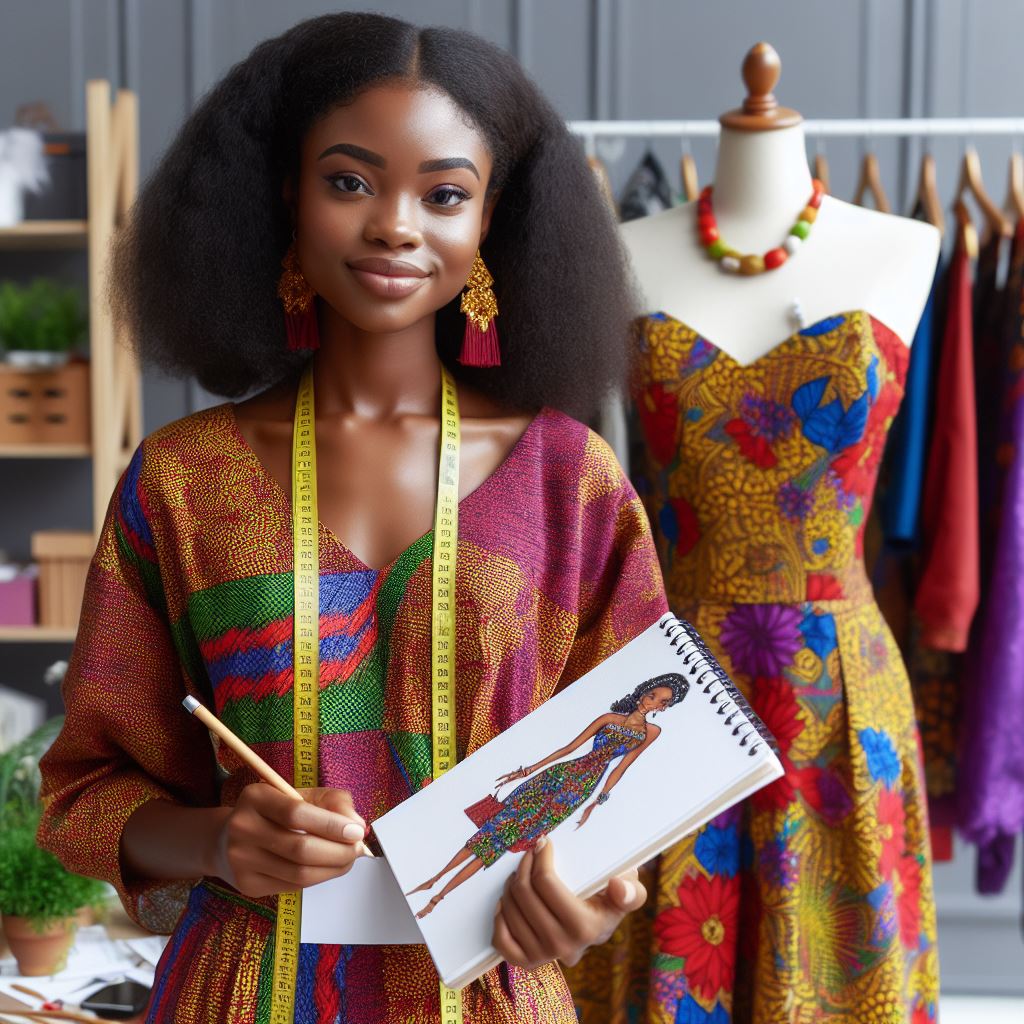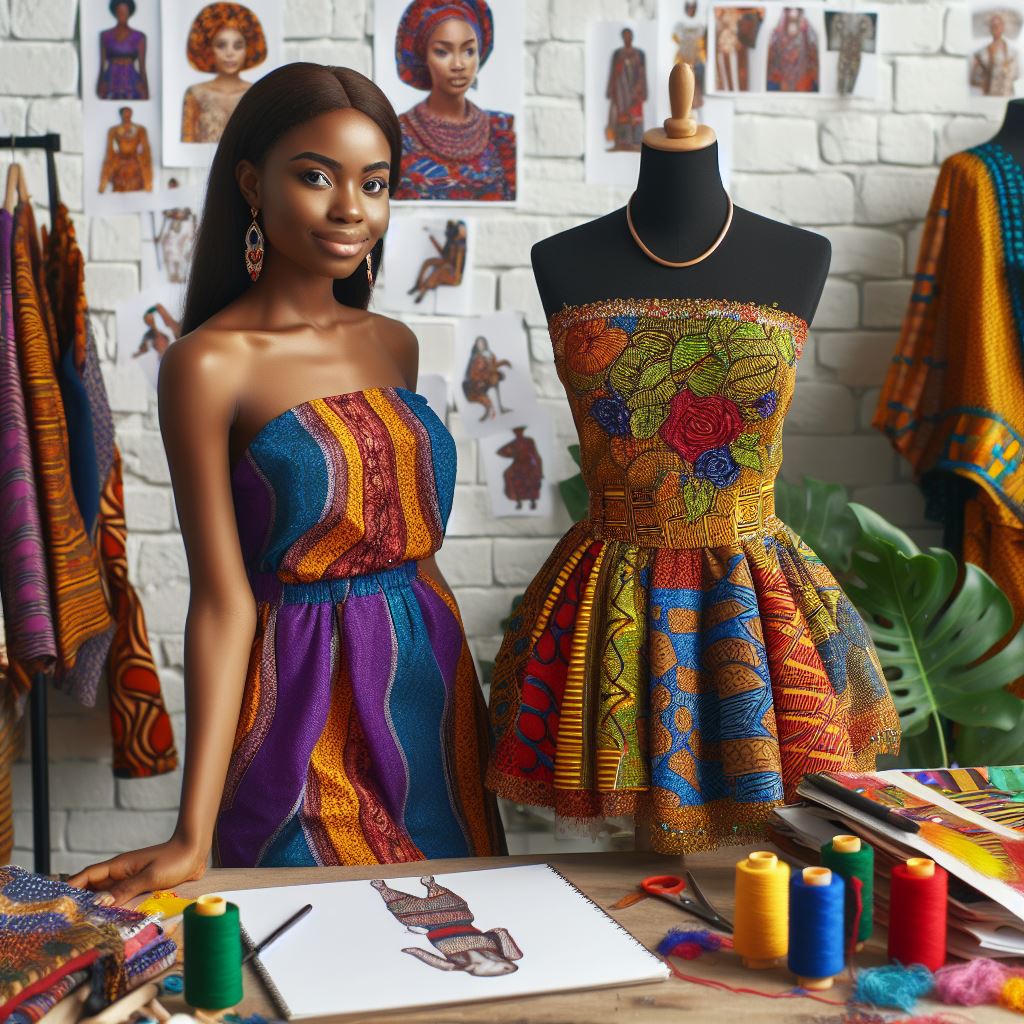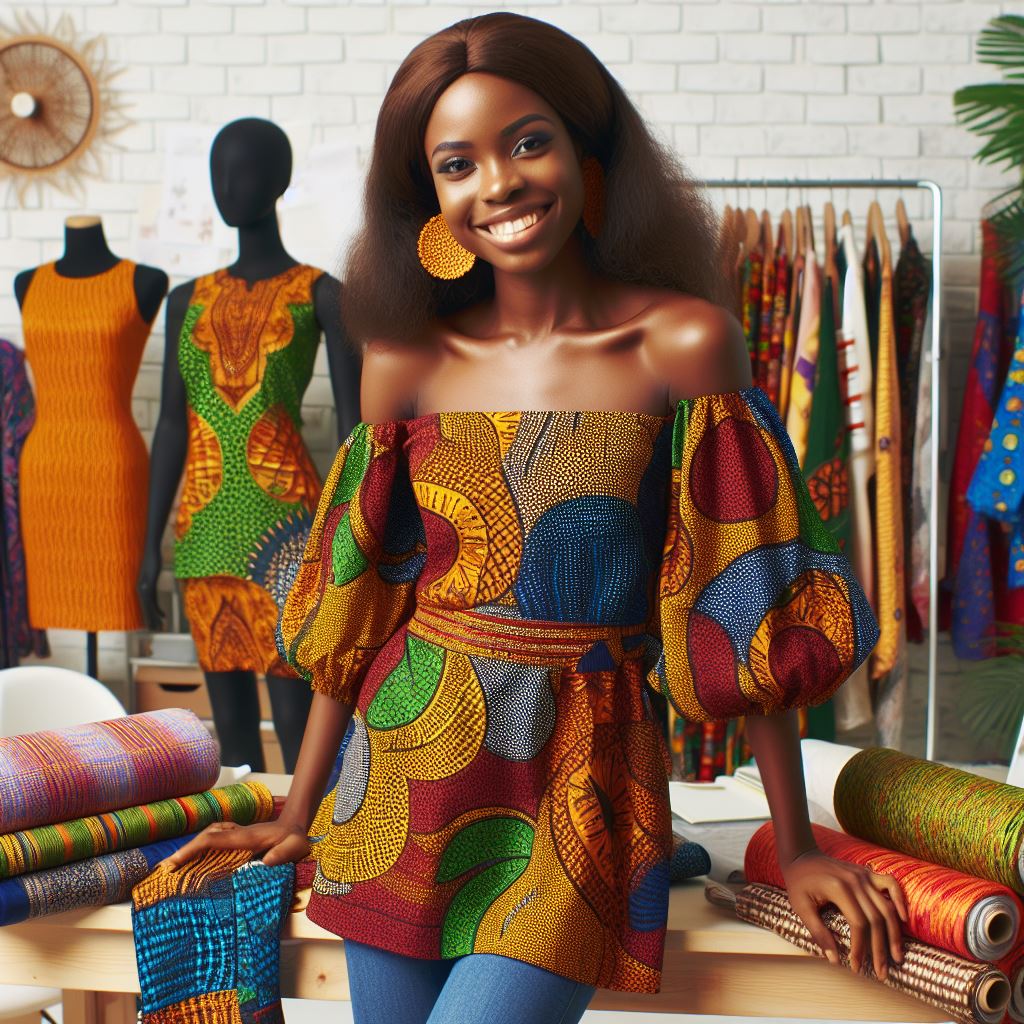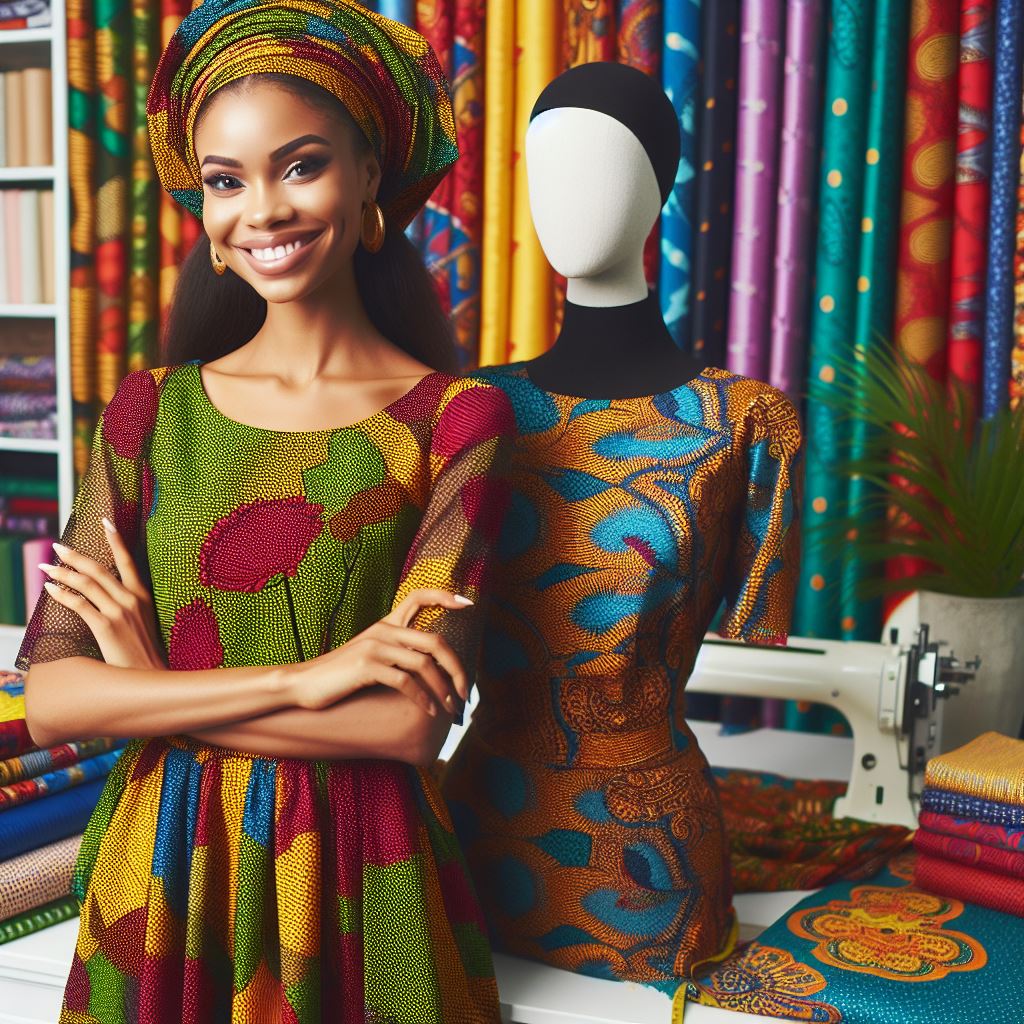Introduction
In the kaleidoscope of global fashion, Nigerian fashion design stands out as a vibrant fusion of tradition, innovation, and cultural expression. It’s more than just garments; it’s a canvas where the rich tapestry of Nigerian culture is vividly portrayed.
Importance of Culture in Nigerian Fashion Design
At the heart of Nigerian fashion design lies culture—a powerful force that shapes every aspect of the industry. Culture serves as a guiding light, influencing design aesthetics, techniques, and narratives.
From the bustling streets of Lagos to the serene landscapes of the North, Nigerian fashion draws inspiration from the diverse cultural heritage of its people.
The significance of culture in Nigerian fashion is evident in every detail—the intricate patterns, vibrant colors, and symbolic motifs that adorn garments. These elements not only reflect the country’s cultural diversity but also celebrate its rich history and traditions.
Furthermore, Nigerian fashion designers often use their craft as a means of cultural preservation and expression. They blend traditional techniques with modern trends, creating pieces that pay homage to their heritage while embracing contemporary influences.
In essence, culture serves as the cornerstone of Nigerian fashion design, imbuing it with authenticity, depth, and a sense of identity. It’s a celebration of the country’s diverse cultural tapestry and a testament to the creative spirit of its people.
Influence of traditional Nigerian attire
Traditional Nigerian attire profoundly influences contemporary fashion design in Nigeria. Designers draw inspiration from rich cultural heritage. Each ethnic group in Nigeria boasts unique traditional clothing styles.
These styles shape modern fashion, blending tradition with contemporary aesthetics. For instance, the Yoruba people’s Agbada and the Igbo’s Isiagu inspire elegant, modern adaptations.
Designers respect these traditional styles while infusing them with modern elements. This fusion creates garments that honor the past and embrace the future. Nigerian fashion designers celebrate cultural identity through these innovative designs.
Use of Indigenous Fabrics Such as Aso Oke, Ankara, and Adire
Indigenous fabrics play a crucial role in Nigerian fashion design. Aso Oke, Ankara, and Adire are staples in the fashion industry. Aso Oke, a hand-woven fabric, signifies status and tradition.
Designers use it for high-end fashion, creating luxurious and culturally significant pieces. Ankara, known for its vibrant prints, is versatile and widely used.
It allows designers to craft everyday wear and haute couture. Adire, a traditional Yoruba dyed fabric, adds a touch of heritage and artistry. These fabrics connect contemporary fashion with Nigerian roots, showcasing cultural pride. Designers elevate these fabrics, making them global fashion statements.
Incorporation of Traditional Patterns and Motifs
Traditional patterns and motifs are integral to Nigerian fashion design. Designers incorporate these elements to pay homage to cultural heritage. Each pattern and motif tells a story, reflecting the designer’s background and inspiration.
For example, the intricate patterns of the Nsibidi symbols inspire bold and meaningful designs. Geometric shapes and symbolic motifs from various ethnic groups add depth and character to garments.
Designers use these patterns creatively, blending them with modern silhouettes. This fusion results in unique and culturally rich fashion pieces. Traditional motifs become contemporary art, celebrated in global fashion arenas.
Celebrating Cultural Diversity Through Fashion
Nigerian fashion design celebrates the nation’s cultural diversity. Designers from different ethnic backgrounds bring their unique perspectives.
This diversity enriches the fashion industry, making it dynamic and vibrant. Each designer’s work reflects their cultural heritage, contributing to a diverse fashion tapestry.
Collaboration among designers from various cultures fosters innovation and creativity. Nigerian fashion becomes a platform for cultural exchange and celebration.
The global fashion community recognizes and appreciates this cultural richness. Nigerian designers proudly showcase their cultural identity, making a mark on the international stage.
Embracing Tradition and Modernity
Nigerian fashion design thrives on the influence of traditional attire, indigenous fabrics, and cultural patterns. Designers skillfully blend tradition and modernity, creating garments that honor their heritage.
The use of Aso Oke, Ankara, and Adire connects contemporary fashion to cultural roots. Incorporating traditional patterns and motifs adds depth and meaning to designs.
By celebrating cultural diversity, Nigerian fashion designers enrich the industry and make a global impact. This vibrant fusion of tradition and modernity defines Nigerian fashion, showcasing its cultural pride and creativity.
Read: Famous Nigerian Alumni of Communication Arts Programs
Impact of Nigerian cultures and traditions
Nigeria is a diverse country with over 250 ethnic groups, each having its unique culture and traditions. These diverse cultures play a significant role in shaping the fashion industry in the country.
From the colorful beads of the Yoruba tribe to the intricate embroidery of the Hausa people, Nigerian traditional attires are a reflection of the rich cultural heritage of the nation.
The use of traditional fabrics such as Aso-Oke, Ankara, and Adire in Nigerian fashion design showcases the beauty and vibrant colors of Nigerian cultures.
Moreover, traditional Nigerian attires are not only worn on special occasions but also on a day-to-day basis, showing the deep connection Nigerians have with their cultural roots.
Representation of cultural heritage through fashion
Nigerian fashion designers often draw inspiration from their cultural heritage when creating new designs. This fusion of traditional elements with modern styles has put Nigerian fashion on the global map.
Designers like Deola Sagoe, Lisa Folawiyo, and Mai Atafo have gained international recognition for their innovative designs that incorporate Nigerian cultural motifs and patterns.
Furthermore, Nigerian fashion shows and events provide a platform for designers to showcase their heritage-inspired collections, promoting Nigerian culture to a global audience.
By incorporating traditional fabrics, techniques, and symbols into their designs, Nigerian fashion designers are preserving and celebrating their cultural heritage for future generations.
Preservation of cultural identity through clothing
In a fast-paced world dominated by Western fashion trends, Nigerian designers are playing a crucial role in preserving the country’s cultural identity through clothing.
By creating contemporary pieces that incorporate traditional elements, designers are ensuring that Nigerian heritage is not forgotten or overshadowed by global fashion influences.
Wearing traditional Nigerian attire is a way for Nigerians to connect with their roots, celebrate their heritage, and showcase their cultural identity to the world.
Basically, the role of culture in Nigerian fashion design cannot be underestimated. It serves as a source of inspiration, a means of representation, and a tool for preserving cultural identity.
Nigerian designers continue to embrace their heritage, creating unique and innovative designs that showcase the beauty and diversity of Nigerian cultures.
Read: Digital Media Trends in Communication Arts
Collaboration with local artisans and craftsmen
In Nigerian fashion design, collaboration with local artisans and craftsmen plays a crucial role in creating unique and authentic pieces.
By working closely with these skilled individuals, designers are able to incorporate traditional techniques and materials into their modern designs, giving them an unmistakable Nigerian identity.
Artisans and craftsmen bring years of expertise and knowledge to the table, allowing designers to push the boundaries of what is possible in fashion.
Whether it’s weaving intricate patterns, hand-dyeing fabrics, or hand-beading intricate designs, these collaborations not only preserve traditional craftsmanship but also elevate it to new heights.
Furthermore, by partnering with local artisans and craftsmen, fashion designers are able to support local economies and communities.
These collaborations provide a sustainable source of income for artisans, empowering them to continue their heritage crafts and pass down their skills to future generations.
Promotion of local talent and skills
Nigerian fashion design also plays a vital role in promoting local talent and skills on a global scale. With a rich heritage of textile traditions and craftsmanship, Nigerian designers have a unique opportunity to showcase their creativity and expertise to the world.
Through fashion shows, exhibitions, and collaborations with international brands, Nigerian designers are able to highlight the diverse talents within the country’s fashion industry.
This exposure not only helps to elevate the profile of Nigerian fashion but also encourages other emerging designers to pursue their passion and showcase their skills.
Moreover, by promoting local talent and skills, Nigerian fashion designers are able to challenge stereotypes and misconceptions about African fashion.
Through their innovative designs and techniques, they are reshaping the global perception of African fashion as being vibrant, diverse, and cutting-edge.
Empowerment of indigenous communities through fashion design
One of the most significant impacts of Nigerian fashion design is its role in empowering indigenous communities. By drawing inspiration from traditional motifs, patterns, and textiles, designers are able to celebrate and preserve the cultural heritage of various ethnic groups within Nigeria.
Furthermore, many fashion designers actively engage with local communities, providing training, employment, and opportunities for economic empowerment.
Designers source materials from local suppliers and collaborate with artisans, positively impacting indigenous lives and preserving their way of life.
In essence, Nigerian fashion design serves as a powerful vehicle for social change and empowerment.
By embracing and promoting local culture, talent, and skills, designers are not only shaping the future of fashion but also contributing to the sustainable development of indigenous communities across Nigeria.
Read: Communication Arts: Job Prospects and Salaries
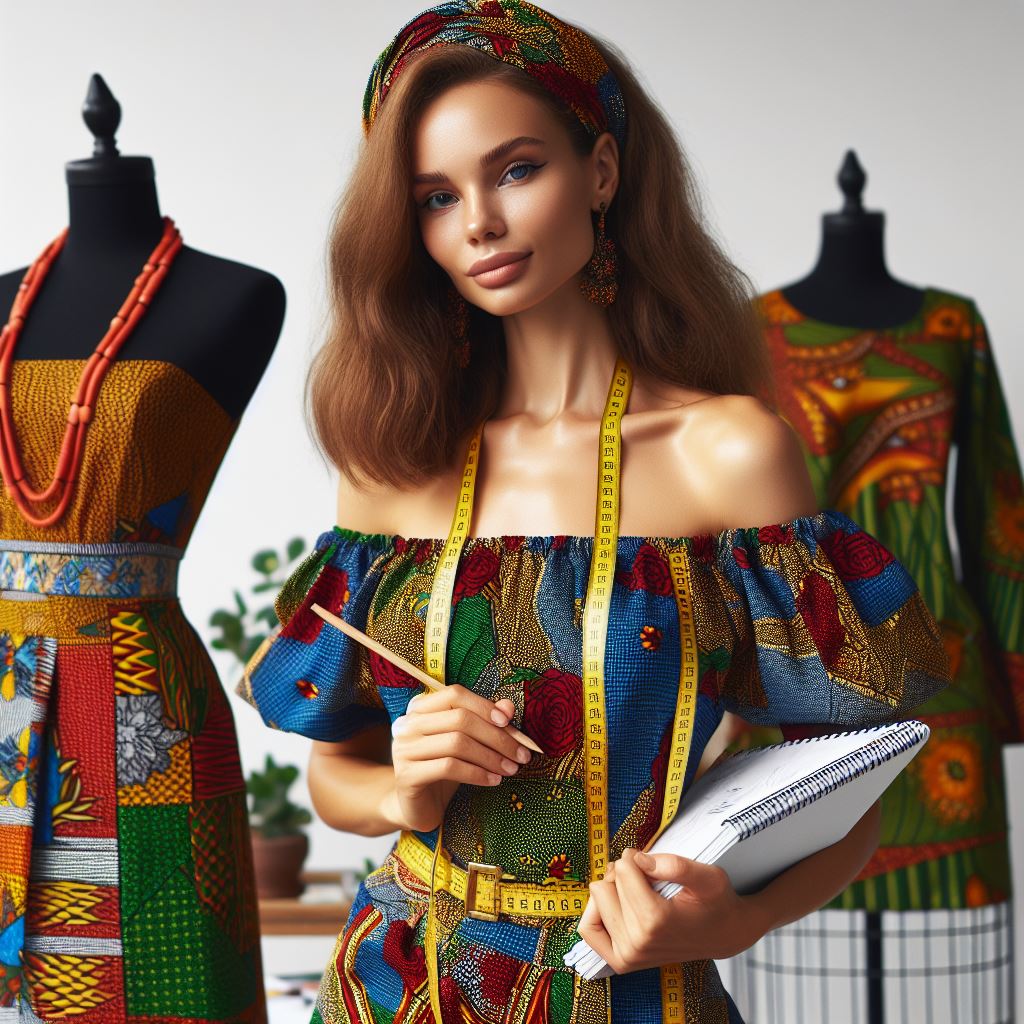
Adaptation of traditional techniques in modern designs
Nigerian fashion designers have embraced traditional weaving, dyeing, and embroidery techniques in their modern creations.
These techniques not only add uniqueness to the designs but also celebrate Nigeria’s rich cultural heritage.
The intricate patterns and vibrant colors used in traditional Nigerian textiles are now featured in contemporary fashion pieces.
By incorporating these age-old techniques, designers are preserving and promoting Nigeria’s cultural identity through fashion.
Fusion of traditional elements with contemporary fashion
One of the hallmarks of Nigerian fashion design is the seamless fusion of traditional elements with modern trends.
Designers skillfully blend traditional fabrics like Aso-oke, adire, and Ankara with contemporary silhouettes and styles.
Transform Your Career with Expert Guidance
Get personalized mentorship consulting that’s tailored to your unique path. Our expert advice is actionable and exclusive.
Get StartedThis fusion creates a distinctive aesthetic that sets Nigerian fashion apart on the global stage.
The combination of traditional motifs and modern cuts appeals to both local and international fashion enthusiasts.
Evolution of Nigerian fashion design over time
Nigerian fashion design has come a long way from its humble beginnings to becoming a recognized force in the industry.
The early designers drew inspiration from traditional attire to create unique pieces that reflected Nigerian culture.
As the industry evolved, designers began experimenting with new materials, styles, and techniques to push boundaries.
Today, Nigerian fashion design is known for its bold colors, intricate embellishments, and avant-garde approach to design.
Read: Impact of Communication Arts on Nigerian Media
Role of Cultural Events and Festivals in Inspiring Fashion Designers
When it comes to Nigerian fashion design, culture plays a significant role in shaping the creativity and inspiration behind the designs.
In this post, we will delve into the various ways in which culture influences Nigerian fashion design, with a focus on the role of cultural events, festivals, celebrations, practices, and rituals.
Cultural events and festivals are a melting pot of traditions, customs, and aesthetics that serve as a fertile ground for fashion designers to draw inspiration from.
These events showcase the rich diversity of Nigeria’s cultural heritage, from the vibrant colors of the Yoruba festivals to the elaborate beadwork of the Igbo celebrations.
Designers often attend these events to observe the intricate details of traditional attire, the unique fabrics and textiles used, and the craftsmanship involved in creating these garments.
By immersing themselves in the sights, sounds, and textures of these cultural events, designers are able to infuse elements of Nigerian culture into their own creations.
Celebrations such as Weddings, Festivals, and Ceremonies
Weddings, festivals, and ceremonies are important occasions in Nigerian society that are marked by elaborate fashion statements.
These celebrations are an opportunity for individuals to showcase their cultural identity through their attire, with each ethnic group having its own distinct style of dress.
For designers, these occasions offer a wealth of inspiration in terms of color palettes, fabric choices, and embellishments.
The intricate embroidery of a bride’s gele, the flowing robes of a masquerade dancer, or the ornate headpieces worn by royalty are all sources of inspiration that can be reinterpreted in modern fashion design.
Inspiration Drawn from Cultural Practices and Rituals
Cultural practices and rituals are another source of inspiration for Nigerian fashion designers.
Designers incorporate traditional techniques like Hausa indigo-dyed fabrics and Edo hand-woven textiles into contemporary designs to preserve cultural heritage.
Rituals such as the naming ceremony, the initiation rite, or the harvest festival are steeped in symbolism and meaning, with garments playing a central role in these ceremonies.
Designers often reinterpret these traditional garments, adding a modern twist while staying true to the cultural significance of the original attire.
Therefore, culture lies at the heart of Nigerian fashion design, providing a rich tapestry of traditions, customs, and aesthetics for designers to draw upon.
By immersing in cultural events, festivals, and rituals, designers create designs that celebrate Nigeria’s heritage while pushing creative boundaries.
Global recognition of Nigerian fashion
Nigerian fashion has gained international recognition in recent years due to its unique and vibrant designs.
Influence of Nigerian designers on international fashion trends
Nigerian designers have made a significant impact on global fashion trends by infusing traditional African elements into modern styles.
Contribution to showcasing African culture on the global stage
Nigerian fashion design plays a crucial role in showcasing diverse African cultures to the world, highlighting the rich heritage and traditions of the continent.
In addition, Nigerian fashion has helped challenge stereotypes and misconceptions about Africa, promoting a positive image of the continent.
Nigerian designers incorporate traditional prints, fabrics, and motifs into their designs, creating a fusion of modern and traditional styles that appeal to a global audience.
The use of bold colors, intricate beadwork, and unique patterns in Nigerian fashion sets it apart from Western styles, making it a standout in the global fashion scene.
Fashion events like Lagos Fashion Week and Africa Fashion Week showcase Nigerian designers with other African talents. These events provide a platform to reach a broader audience. Designers connect with international buyers and fashion influencers.
Nigerian designers collaborate with global brands and designers, solidifying their international influence and boosting the visibility of African fashion.
Through their creativity and innovation, Nigerian designers continue to shape and redefine global fashion trends, making a lasting impact on the industry.
In review, culture significantly promotes diversity, inclusivity, and creativity in Nigerian fashion design. It highlights African heritage’s beauty and richness for global appreciation.
Conclusion
Concluding our exploration of culture’s role in Nigerian fashion design, we see its profound impact on the industry’s identity and narrative.
Culture is not merely a superficial aspect but an intrinsic part of the creative process, influencing everything from fabric choices to design motifs.
As we reflect on the significance of culture in Nigerian fashion, we are called to appreciate and support the cultural richness that defines the industry.
It is through this appreciation that we honor the artisans, designers, and craftsmen who breathe life into each creation, infusing it with the spirit of Nigeria’s diverse cultural heritage.
Furthermore, by embracing and celebrating cultural diversity, we foster an environment of inclusivity and creativity within the fashion industry.
We encourage designers to draw inspiration from their roots, celebrate their heritage, and create designs that resonate with a global audience.
Nigerian fashion beautifully weaves tradition and innovation, creating a vibrant, diverse tapestry of creativity reflecting the nation’s spirit.
Let us continue to cherish and support this cultural legacy, ensuring that Nigerian fashion remains a beacon of creativity and expression for generations to come.

